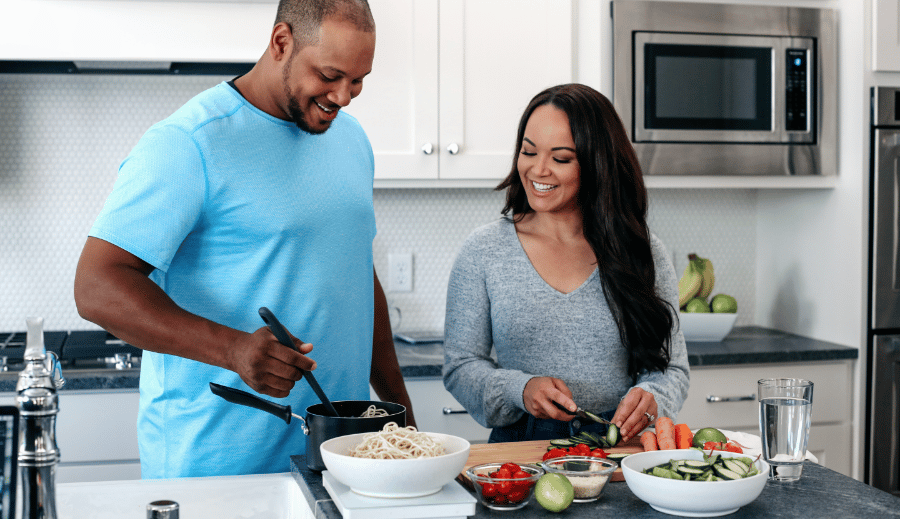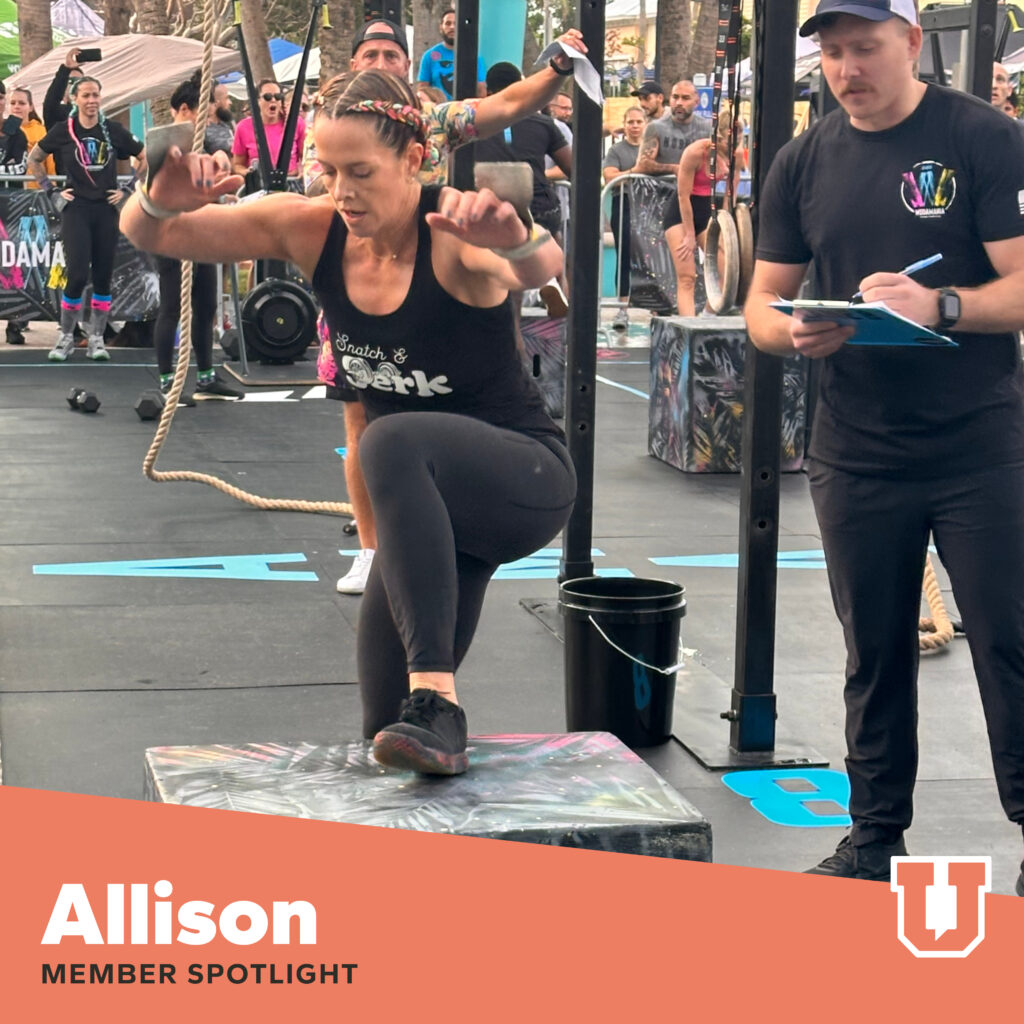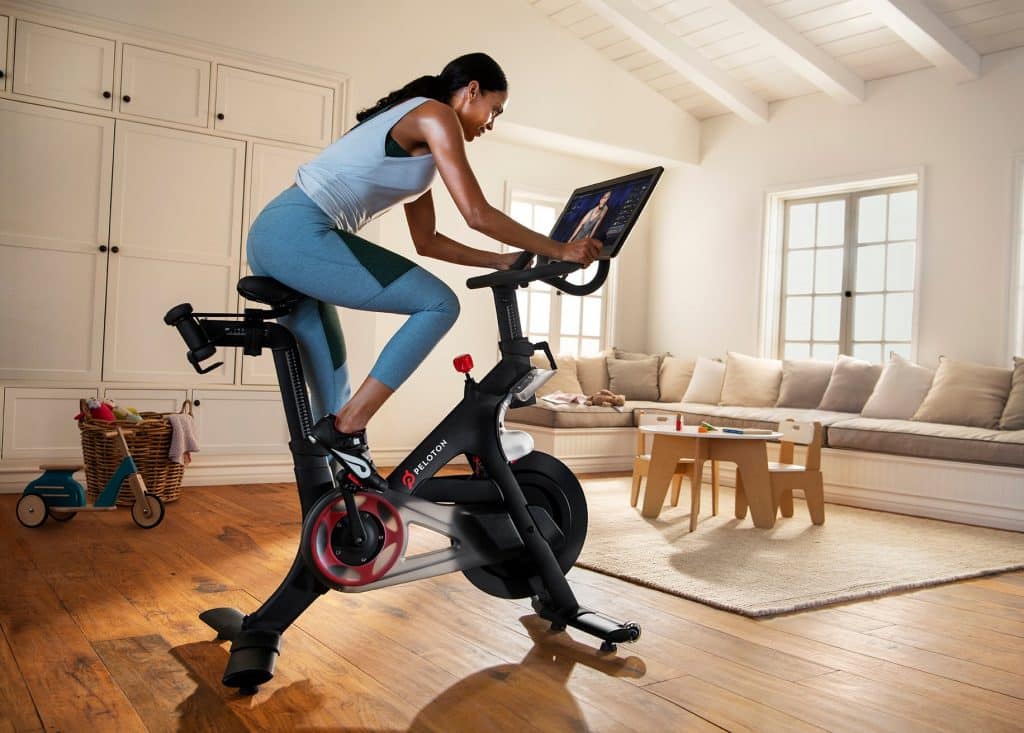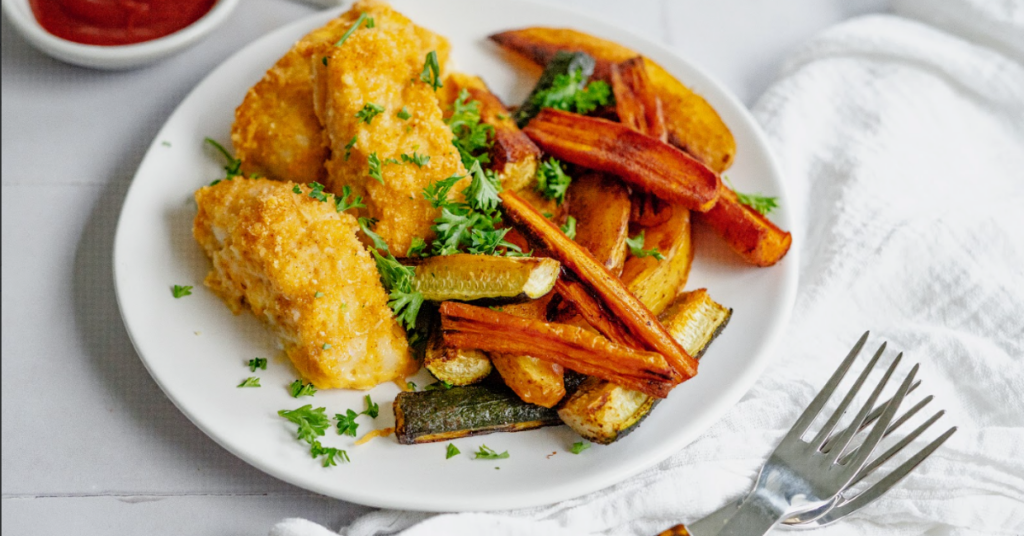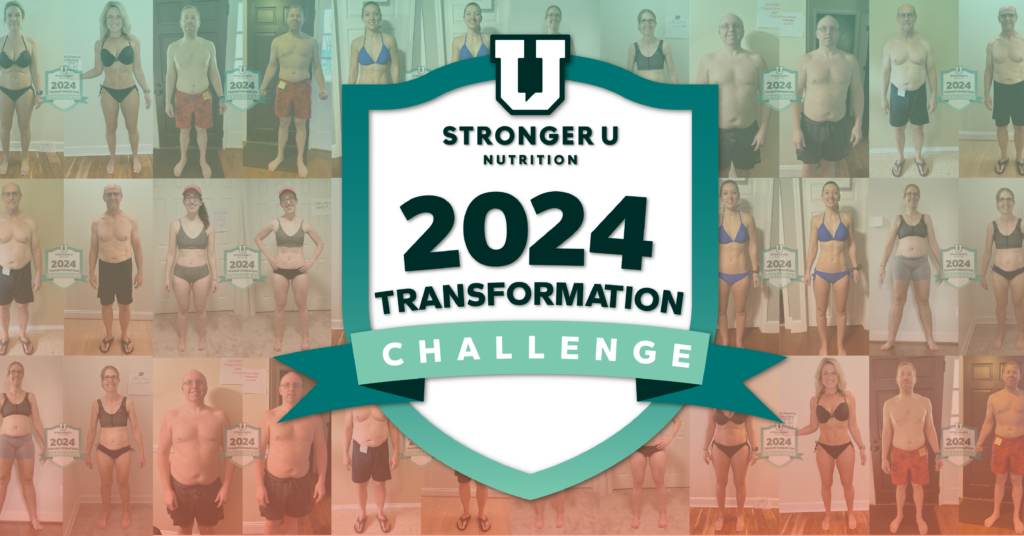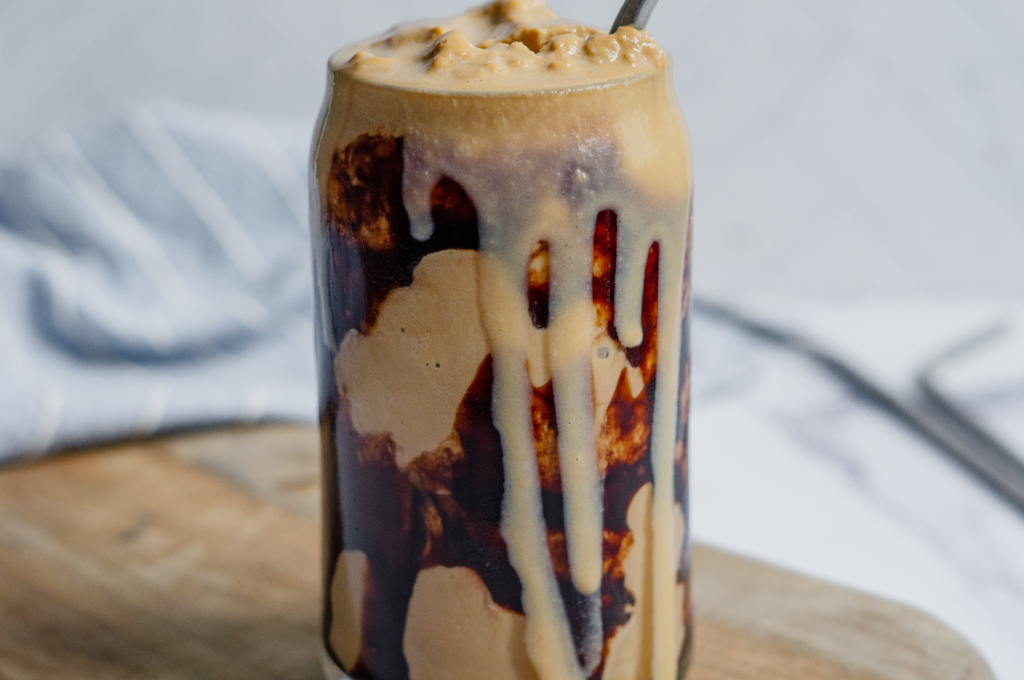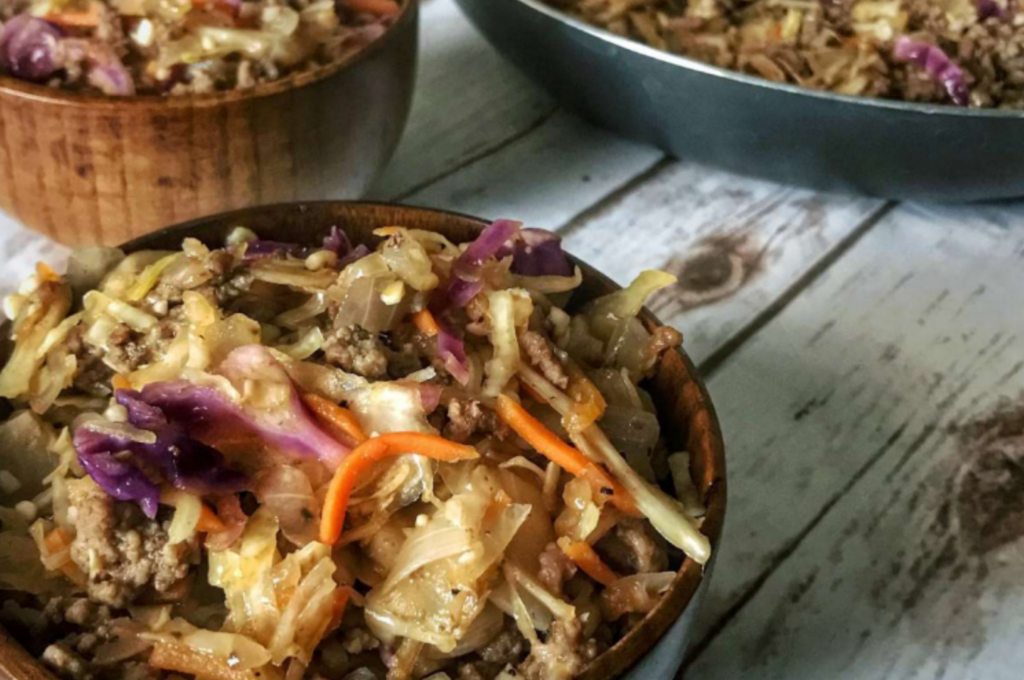There’s no denying the fact that tracking and logging food can cause some people to worry and stress, and I’d like to reduce that worry. I always say the initial stress from tracking is worth its weight in gold because it is the door to the path many seek. With the help of tracking food, many people experience benefits including:
- Food freedom
- Improved food knowledge
- Reaching goals (no matter what they are),
- and tossing long-term dieting frustrations out the window
But, the path isn’t paved in gold, necessarily. There is work to be done, and if you’re looking for another quick fix, that will likely lead you back here anyway, tracking may not be the approach for you.
You do not need to track forever, but you will want to do it for long enough.
But if you are frustrated and want to learn a new way, allow me to make this macro thing easier. So, let’s dive in.
Macros 101
First, a quick primer on macros in case you’re new to this. Macro is short for macronutrient, which in this world means proteins, fats, and carbs. Tracking them ensures you’re eating the right amount for your goals, it allows flexibility, and helps you still eat some of your favorite foods. Albeit, maybe not in the amounts we all want.
Macros inherently encourage people to think in a precise manner. When someone has a goal of 130 grams of protein, for example, 138 seems like it wouldn’t be right. In the mind of many “dieters” if you aren’t on, you’re off, and when you’re off…why bother? We need to squash the narrative about perfection in the nutrition world. It causes more stress than you need for no added benefit. I’d argue, it causes more of a detriment.
The precision necessary to see change is most likely not as close to those “magical numbers” as you may think. It’s a lot like a speed limit sign(which many of us look at like a speed suggestion sign). You know, 40 means 50. As long as you aren’t too far over or under, you’re probably in a good place. When it comes to tracking your macros, what is the “good place”?
Let’s talk about a sample macro breakdown
130 protein
60 fat
180 carbs
When someone has this macro split to hit, they may stress about hitting these numbers on the nose. Guess what? That’s a normal feeling to have. “You were given a number, now go”. Here’s the truth about tracking macros: it’s not that strict. . Sure, you can increase and decrease portions in order to land on a specific number but can that backfire in a way that impacts your time, headspace, and relationships? The answer is, yes. So, I want to give you permission to stretch precision.
130grams of protein can be 120-140
60 grams of fat can be 50-70 (note-I’d make sure fat is closer to goal since its caloric impact at 9 per gram can add up quickly)
180 of carbs can be 170-190
This is just an example, and I’m not saying you need to have a 10-gram swing in either direction, but I am saying if you’re close, and calories are similar, you should not see any impact on your goals. I do not want you to live and die by your exact macro goal. I want you to understand what matters regarding the goal- consistency. The magic in macros is not in specific numbers but more so in the behaviors these numbers influence.
Food Prep and Planning
Now that we have the precision piece sorted, let’s talk about steps you can take to support your tracking. There are a few things to consider when thinking about what foods you will eat to support your goals: prepping, products, and planning. Let’s start with prepping.
A lot of people worry about how they’re going to make this work with their food prep so I always suggest making it simpler. Any Google search will show you food bloggers who are hacking recipes to be macro-friendly, and they are a great resource for some. However, if a macro-based meal is taking you an hour to figure out just to hit your macros, it may be a good idea to simplify that meal. The base of most meals, whether you’re following macros or not, should be protein, with some veggies, and healthy fats. Now, not all meals need to be that, obviously, but if you’re building a house of better eating that is the foundation.
The next thing you want to consider is what food products you have in your home that will make eating more simple for you. Make sure you have dominant macro foods handy. Dominant macro foods are foods that are primarily one macro with trace amounts of other macros. Example- Chicken breast. It will be mostly protein but have a little fat. If these dominant macro foods are handy, you won’t need to worry where the macros are coming from.
Finally, think about how you plan for your meals. One of the biggest stressors for new trackers is that they feel like all they do is think about food. From my personal coaching experience, I find that often people who feel like they are obsessing over what they eat are the same people who are not planning ahead. So, if you do not want to think of food all the time, consider planning your daily eating the day or days before. A good rule of thumb is to prep on Sunday and Thursday so you have food for the week, and through the weekend.
Length
Many people who start tracking macros have initial anxiety that they’ll have to do this forever, since sustainability is often important. Personally speaking, I will tell you, I do not currently track. Some may read that and say “the guy that started Stronger U doesn’t do Stronger U!” and to that I say, this program is not macros. It is helping people be better eaters than they used to be. And macros is what lead me to know enough and build awareness so I did not have to track.
For some reason, many in this field will say “do not do something that you can’t do forever” and I’ve always wondered, why? The way you eat depends on your current goal, eating skill level, time of year, and circumstance. There isn’t a single eating approach that is so malleable it fits in that bucket, so you do not need to eat the same way forever. You just have to do it for long enough. Tracking can be sustainable if you want to do it but it does not have to be nor is it meant to be sustainable for everyone. You simply graduate to other approaches.
If your goal is fat loss, much like a caloric deficit isn’t forever, tracking food may not be either. So if you’re not doing this because you’re afraid you have to do it forever, fear not. That isn’t the case.
Move into Macro Tracking with Confidence
When people start macro tracking, it’s easy to look at the barriers. “I’m not sure how to track my food”, “What about my demanding job?”, “How can I do this forever”. I get it. When I try something new, I also can recognize my apprehension (or fear of failure) when it comes to trying something new. This is why these tips and tricks for macro tracking are so important. It’s not about making life more complicated or asking to disrupt your entire life. It’s about putting habits into place that will help you be more mindful of what you’re eating and how it impacts your goals.
Of course, for anybody who is new to tracking, working with a Stronger U coach will be your best bet for success. A Stronger U coach is an expert when it comes to nutrition, macro tracking, and making small changes that create lasting impact in their member’s lives. For more information about how Stronger U can help you, head to our website!

